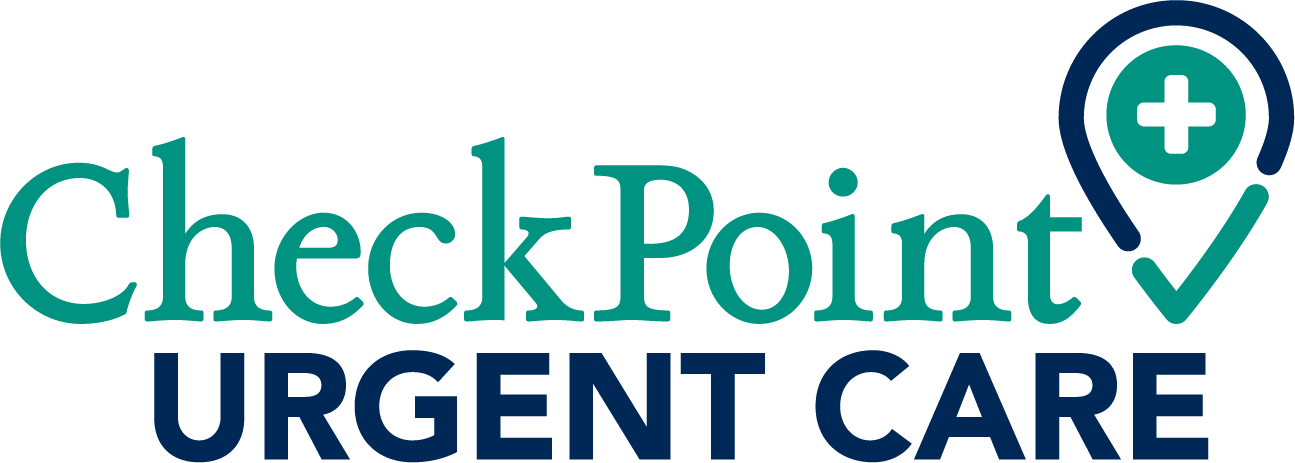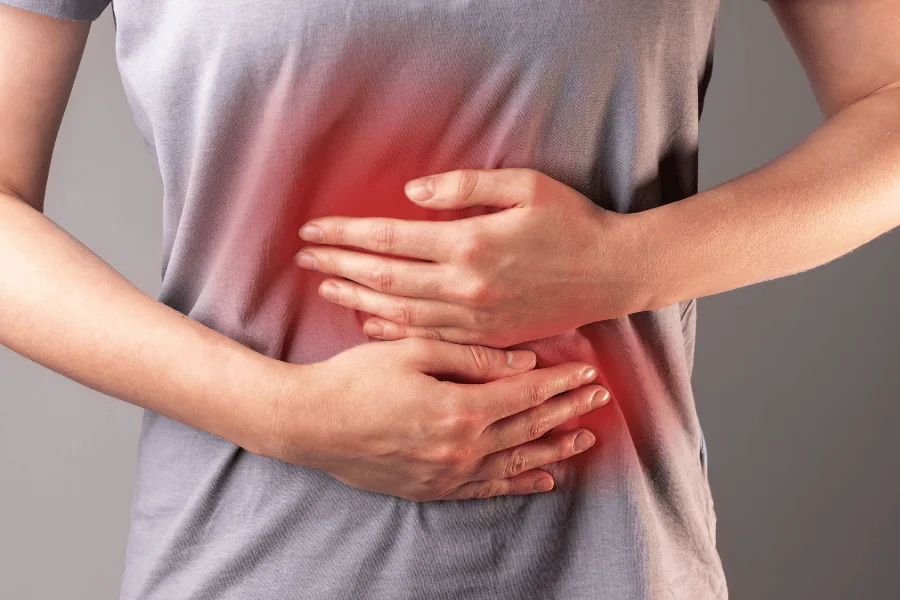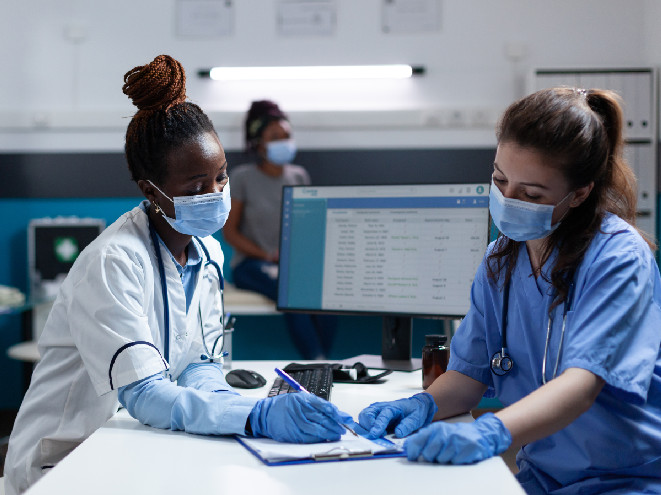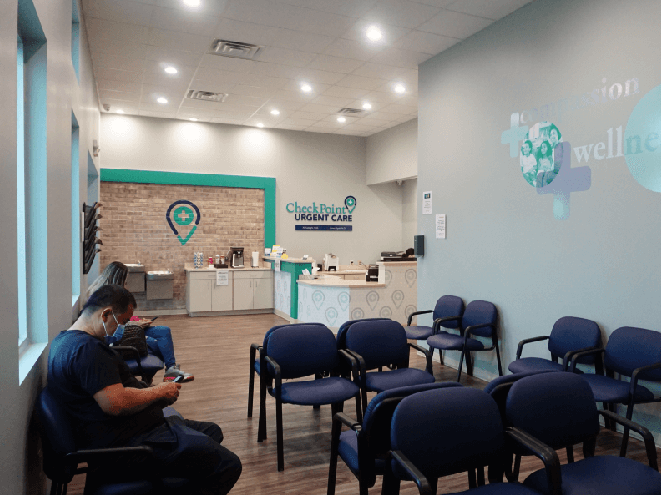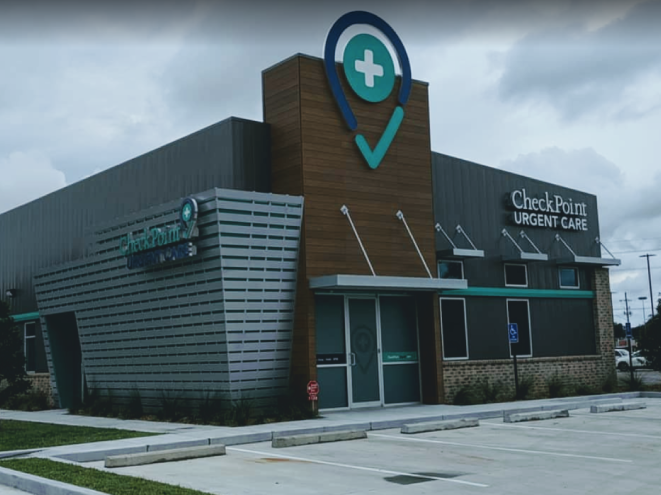Stomach pains are something we all experience from time to time, no matter our age. Sometimes the issues tend to resolve themselves over time or with over-the-counter medications that soothe and settle the stomach. When your issues become frequent and uncomfortable, it might be time to seek treatment for gastritis or indigestion with CheckPoint Urgent Care.
CheckPoint Urgent Care: Gastritis or Indigestion?
Gastritis is a general term for a group of conditions that all have one thing in common: inflammation of the lining of the stomach. Most of the time, gastritis is caused by an infection of the bacteria that is common in stomach ulcers, the H. pylori bacterium. Other causes of gastritis include frequent use of certain pain relievers and heavy alcohol use.
Indigestion is a general discomfort in the upper abdomen. Indigestion describes certain symptoms- such as feeling full just after beginning eating and general belly pain. Indigestion may experience indigestion differently, and as a result, it can feel differently for each person.
Symptoms of Gastritis
Gastritis can be tricky in that it doesn’t always cause distinct signs and symptoms. Gastritis can be acute, meaning it’s sudden and temporary, or it can be chronic, meaning it’s long-term. You may not feel chronic gastritis all the time, and it usually develops as a result of another condition or illness.
If you’ve started noticing signs of gastritis, that could mean it’s more severe, or it has been going on for some time. Symptoms of gastritis can include:
- Feeling full shortly after beginning eating
- Loss of appetite
- Nausea or vomiting
If the condition has worsened to the point where stomach ulcers are bleeding, you may also find:
- Melena (a black stool)
- Coffee ground emesis (vomitus): vomit that looks like coffee grounds
Most of the time, gastritis is temporary and not serious. But if symptoms are prolonged, it can begin to wear down the stomach lining. This can lead to complications.
Treatment for Gastritis
If the gastritis is acute, it will go away when the cause of it goes away. If the gastritis is caused by an infection, once your immune system has defeated the infection the inflammation subsides. If the cause is from too much alcohol or pain relievers, once the alcohol or drugs have exited your system, the lining will soon repair itself.
If the gastritis is chronic, it won’t go away on its own, but treatment can help. Usually, chronic gastritis is linked to another illness or chronic condition. Sometimes it’s not curable, but manageable. Treatments can reduce the inflammation. Depending on the severity and duration of symptoms, deep damage can occur to tissues, which may take longer to heal.
You may be able to treat sudden gastritis symptoms at home with over-the-counter medications like Pepto-Bismol and others that neutralize stomach acid. However, you want to ensure that the cause of the gastritis has been eliminated, so it’s best to make an appointment with a healthcare provider, like those at CheckPoint Urgent Care.
Symptoms of Indigestion
Indigestion can involve several different symptoms, but always includes some type of abdominal pain or discomfort. These symptoms will occur after eating, when your stomach and other organs are doing the work of digesting food. Most experts agree that symptoms of indigestion include:
- Epigastric pain: this is the central, upper abdominal region. This area is where your stomach is
- Burning sensation: this burning feeling can come from stomach acids and enzymes in your GI tract or from inflammation
- Early or late-lasting satiety: feeling full soon after eating, or feeling full long after eating. This suggests your stomach is overwhelmed
Those with indigestion also report feeling:
- Bloating
- Gas
- Nausea
- Belching
- Regurgitation of swallowed food
- Acid reflux
- Heartburn
It’s also important to note that sometimes a heart attack can present as symptoms of indigestion. Seek medical attention immediately, or call 911 if indigestion is accompanied with:
- Sweating
- Shortness of breath
- Clenching feeling in the upper abdomen
Treatment for Indigestion
Most people find indigestion relief in over-the-counter antacid medications, like TUMS, Rolaids, and Pepto-Bismol. They work well for occasional indigestion, but if your symptoms are prolonged or they stop working, seek care from a medical provider, like those at CheckPoint Urgent Care.
If you seek professional help for indigestion, your provider may ask questions about your diet and lifestyle. A physical exam may occur to look for any obvious signs of disease. At that time, certain tests may be ordered to rule out certain conditions. Prescription acid-blocking medications may help. These can include:
- Histamine receptor antagonists (H2 Blockers): these medications work by blocking chemicals that tell your body to produce stomach acid. These aren’t a long-term solution though, as your body may adapt to them, making them less effective
- Proton pump inhibitors: these are stronger acid blockers and promote tissue healing. These are very effective and can be taken long-term
Seek Relief from Gastritis and Indigestion at CheckPoint Urgent Care
Some stomach issues tend to resolve themselves, but when they turn severe or are ongoing, it’s best to get checked out by a medical provider to rule out anything larger. It’s also a good way to get to the cause of your problems, in the event that something else is causing them.
If you’re seeking professional help, the team at CheckPoint Urgent Care has experience treating gastritis, indigestion, and other stomach conditions. Let our team get you back to feeling 100%. Make an appointment by contacting us today.
